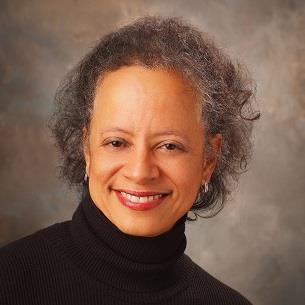Months ago when I defined a theme for my year as ASCO president, “Equity: Every Patient. Every Day. Everywhere,” I never imagined we would experience a health care pandemic that would disproportionally impact people of color. Nor could I know this would be the moment when yet another brutal crime against an African American would so capture the nation’s attention and bring long-simmering pain to the surface.
This has been a difficult week, on top of a difficult past few months. But even after the protests conclude and the pandemic is contained, we will still be left with deep-seated issues of racial, social, and economic inequity in America and other parts of the world.
We know that racism undermines public health, and we know it deeply affects patients with cancer. Racial and ethnic minorities face poorer outcomes, are less frequently enrolled in clinical trials, and are less likely to be offered palliative care, genetic testing, and other critical care. Specifically, African Americans have the highest death rate and shortest length of survival of any racial ethnic group for most cancers.
We cannot tolerate these inequities any longer. We must commit the same energy and focus we pour into conquering cancer to addressing systemic issues that affect the health of people of color in our country.
Since its founding in 1964, ASCO has been dedicated to equal access to the highest quality cancer care for everyone, no matter who they are, where they live, or the color of their skin. But this moment calls on us to do more, and we must work together to enact meaningful change.
The oncology community must confront and address complex forces and systems that have created disparities in cancer prevention, diagnosis, treatment, and research. At ASCO, we are embedding a health equity lens into all of our programs. More than ever, we are committed to using our collective voices to advocate for policies that improve access to insurance coverage and affordable care for all patients.
We are also committed to building on our work that aims to cultivate a diverse oncology workforce and support people of color as they advance in their careers. Later this summer, ASCO’s Health Equity Committee will issue concrete recommendations to achieve health equity in the near and long term. To be clear, this is just a start, and there is a lot of hard work ahead of us. We know that meaningful change requires confronting our own prejudices and biases—and we must begin the difficult work of addressing them for the benefit of our colleagues, our patients, and our communities.
I am so proud of the hope and promise that ASCO represents and I am committed to leading our Society forward at this particular moment in our history. We are stronger when we work together, united in purpose to conquer cancer—for every patient, every day, everywhere. As always, ASCO is here to support you as you go about your important work caring for patients with cancer. In the days and weeks ahead, we welcome your ideas and participation in advancing this dialogue throughout ASCO and promoting long overdue equity in all aspects of cancer care and research.


Comments
Denis Brin Hammond, MD, FASCO
Jun, 07 2020 1:07 PM
Dear Dr. Pierce, Thanks for reminding us of the moral imperative that we have as physicians to work for a world with greater equity in access to health care. Over the years, ASCO has worked to assure that all people have access to the highest quality health care. It seems to me that the time is right to increase that effort. The pandemic has highlighted the differences in health care outcomes between the privileged and the underprivileged. The events in Minneapolis have once again exposed the life and death relationship that divides the races in America. ASCO recently created the Association for Clinical Oncology in part to enhance ASCO's advocacy work. I hope that this year will see a redoubling of ASCO's and ACO's efforts to make sure that all people have access to the highest quality health care and to the resources needed to lead a healthy life. Thanks for the work you are doing, Denis B. Hammond, MD FASCO
Bernadette Anderson
Aug, 15 2020 7:01 AM
One comment and 16 non-audible likes from highly educated people in the helping professions. Dr. Pierce included that "In the days and weeks ahead, we welcome your ideas and participation in advancing this dialogue throughout ASCO and promoting long overdue equity in all aspects of cancer care and research." How disrespectful to not have this acknowledged beyond one comment. Write it. Type it. Say it. When we say something we will do out loud it tends to make us follow through on it. No one needed reminding of systemic racism and our part that has maintained it. And the pandemic is not the first big and loud exposing of the violence and harms, such as with their health outcomes, against Black and Indigenous people in the U.S. Let us not forget Katrina. It was those who actually support, advocate and have had enough who filled the streets around the world to light a fire under that systems arse. Get to work professionals. Find the way. One of the ways cancer agencies and medical boards, etc can bring cancer deaths down is to approach and demand from the forces to put an end to our chemically laden food system. In closing, the only thing that Dr. Pierces letter reminded me about? Was that in 2020 she should never have had to write it.